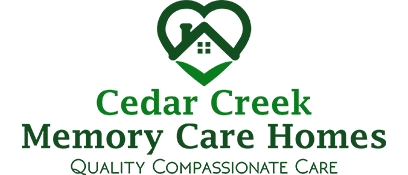Exploring Treatment for Alzheimer’s Disease: A Comprehensive Guide

According to the Alzheimer’s Association, around 7 million people are living with Alzheimer’s in the United States alone. The condition primarily affects older adults, and there’s no known cure, but certain drugs have shown promise as treatments for the disease, at least in clinical trials.
At Cedar Creek, we offer Alzheimer’s care tailored to each resident and can help with all stages of the disease.
Understanding Alzheimer’s Disease and Its Impact
Alzheimer’s disease affects a person’s memory and cognitive function. It’s a progressive condition and in the later stages of the disease, people may struggle to carry out the basic activities of daily living.
Alzheimer’s is the leading cause of dementia, a state where a person’s mental function has severely declined and they’re showing difficulties with memory, language and reasoning. Some people with dementia also show behavioral symptoms or personality changes.
Our skilled care team at Cedar Creek offers treatment for all stages of Alzheimer’s disease. We help individuals with mild cognitive impairment maintain their independence, and we offer a safe and compassionate environment for those experiencing more severe memory loss, confusion and other symptoms. Our comprehensive care programs help people with Alzheimer’s maintain a higher quality of life as the disease progresses.
Alzheimer’s Disease Treatment: An Overview
At the moment, there’s no cure for Alzheimer’s, but researchers have found that anti-inflammatory drugs can help slow the progression of early Alzheimer’s disease. Other drugs are currently undergoing clinical trials to determine whether they may alleviate mild to moderate symptoms of the condition.
At Cedar Creek, we take a holistic approach to the treatment of Alzheimer’s disease. We offer a homelike environment where residents can eat a nutritious diet, maintain a healthy lifestyle and engage in life-enriching activities that promote cognitive function. This can help slow the progression of the disease during the early stages and help those with moderate to severe symptoms enjoy a higher quality of life.
Treatment Options for Alzheimer’s Disease: Choosing the Right Path

Receiving news of an Alzheimer’s diagnosis can be difficult. For many, there’s a fear of the unknown and a worry about what the future holds in terms of quality of life. Loved ones may find the behavioral and psychological symptoms of Alzheimer’s confusing and difficult to deal with. Learning about Alzheimer’s disease progression and how to manage the symptoms is essential.
Your primary care physician can advise you on the potential benefits and side effects of medication and how to handle the progression of the disease. The holistic approach to Alzheimer’s treatment we take at Cedar Creek includes good nutrition, exercise and a range of therapies and activities designed to help prevent cognitive decline.
Early-Stage Alzheimer’s Treatment: Setting the Foundation
During the early stages of Alzheimer’s, a person may notice mild forgetfulness or confusion or struggle with managing finances and other tasks. Early-stage intervention at this point could help them better manage daily life so they can maintain their independence as much as possible.
Early intervention could also help slow the progression of the disease. Drugs such as donepezil, rivastigmine and galantamine have been found to help prevent symptoms from worsening for months or, in some cases, years.
Getting health conditions such as diabetes or high blood pressure under control could also help slow the progression of Alzheimer’s.
Mild Alzheimer’s Disease Treatment: Promoting Quality of Life
It’s often possible for an individual to live independently during this stage of the disease, as long as they receive support from loved ones or caregivers. During this stage, it’s important to promote brain health by encouraging the person to live a healthy lifestyle and putting safeguards in place to help them live safely.
Treatment for Moderate Alzheimer’s Disease: Finding Balance
As a person’s Alzheimer’s disease progresses, they may find it more difficult to carry out activities of daily living. At this stage, they may feel confused or suspicious of caregivers, and it’s important they have a stable routine and feel safe in their environment. Memory care communities offer invaluable support for individuals at this stage of the disease process.
Treatment for Late-Onset Alzheimer’s: Addressing the Challenges
Dementia is a life-limiting condition, but the prognosis for someone with Alzheimer’s can vary depending on their age when diagnosed. For example, someone diagnosed in their 60s is likely to live long enough to experience moderate to severe symptoms, while someone diagnosed in their 90s may find Alzheimer’s medications can keep the condition at bay long enough for them to retain a high quality of life.
Types of Treatment for Alzheimer’s Disease: Finding the Best Care
There are different treatment options available, including:
- Specialist drugs to attempt to slow the development of the condition
- Drugs to treat agitation, sleep disorders and other symptoms
- Lifestyle changes to promote better cognitive health
- Therapist counseling to help people develop coping strategies and relearn life skills
- Dementia care is provided in a safe environment with cueing and behavioral management to reduce distress
It’s important to choose an approach tailored to the individual based on their age, the stage of Alzheimer’s they are experiencing and their symptoms.
An Individualized Treatment Plan for Alzheimer’s Disease: What to Expect at Cedar Creek

We offer a variety of Alzheimer’s treatments at Cedar Creek, and we always aim to get to know each resident and provide a treatment plan tailored to their needs. Our approach to treating Alzheimer’s disease differs depending on whether the resident has mild to moderate symptoms or is at a later stage of the disease.
By taking a person-centered approach to care, we ensure all our residents feel safe and supported and can enjoy their time living with us.
Non-Medical Alzheimer’s Treatment Options: A Holistic Approach
While researchers are working on wonder drugs to protect our brain cells and help future Alzheimer’s patients, there’s no cure at the moment. Alternative treatment strategies such as support groups, physical activities and brain training/cognitive enhancing exercises can help a lot for those in the earliest stages. Our program includes all of these approaches and the hope is that our residents and families feel supported in their treatment plan.
How Cedar Creek Supports Alzheimer’s Treatment and Care
Our care team takes a personalized approach, aiming to support each resident in a way that works best for them. Our employees are trained in caring for residents with dementia, and our goal is to have one staff member for every three to four residents. This ensures everyone gets enough one-on-one time for our staff to build trust and a good relationship with the individuals in their care.
Making an Informed Decision: Treatment for Alzheimer’s at Cedar Creek
If you’re evaluating care facilities for a loved one with moderate or severe Alzheimer’s disease, it’s a good idea to speak with the staff at a few locations. Try to book a visit or tour to meet some residents and evaluate the facility in person.
If you’re considering one of the Cedar Creek homes, contact us today to request a brochure or meet with one of our team members. We’d be happy to discuss your circumstances in person and help you decide if a Cedar Creek property is the right fit for your loved one.
Navigating Alzheimer’s Disease Treatment With Confidence
An Alzheimer’s diagnosis can be distressing, but with the right treatment plan, it’s often possible to slow the condition’s progression and manage the symptoms. If you’re not sure which care options are best for your loved one, contact Cedar Creek or call us at (301) 384-4017 for personalized guidance and support.

